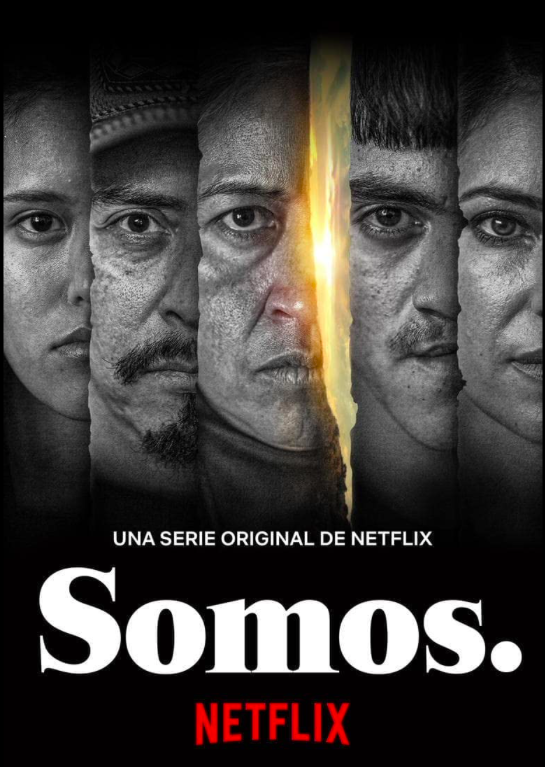[Spoilers ahead]
In more than one way Jesse Andrews’ Succession (2018-2023) is a show all about the limits and possibilities of successions. That is, not only is the show worried about the way a series of similar events happen after each other, but also the show is worried on the contingency of this series. Precisely, the drama of the Roy family, a corporate juggernaut owner of a giant broadcast company (ATN), along with thematic amusement parks and cruise lines in the US, resembling closely America’s Murdoch conglomerate, is not only about the demise of the patriarch, Logan Roy, and the future successor, but about the idea of succession in a broader sense. What is beyond, or after, the riches, the power, the corporate and familial relations that a global enterprise, owner of all forms of entertainment, have proven to fall short in a world where friendship is impossible, and any relationship is murky and fragile? Or to put it differently, and, perhaps, clearer, what comes next after the normal way of capitalist accumulation of power, wealth, influence, and enjoyment has collapsed? For the crisis of the Logan family is not only theirs. Today power, wealth, influence, and enjoyment are no longer achieved by the bond of friendship, or other bonds proper to the development of bourgeois society (family values, codes of sociability, and so on). With Logan Roy’s foretold death, as early in the series is announced by the stroke, he suffers that only deteriorates his health throughout the show, Succession wonders what happens once the master of these bonds is gone.
In chapter one of the first season, way before Logan Roy has his first stroke that sends him to a coma, there is a meaningful scene. This is the opening scene. With a camera angle that can hardly focus, a confused Logan Roy walks into a corner of a dark room. He then proceeds to pee on the carpet and the camera focuses on the stain the flow of pee makes onto the surface. Once he’s done, Logan regains awareness of what has happened. Then, a service woman assists him. Finally, Marcia, his by then wife, enters the room and comforts him. This scene is not only foretelling the fate of Logan, as his health deteriorates, but it is also participating of a particular visual tradition. It is, for instance, a very similar scene to the opening one of the first episode of the show Billions (2016-2023), created by Brian Koppelman, David Levien, and Andre Ross Sorkin). In Billions, a show about the dispute between billionaires and ruthless district attorney in New York, the opening scene is not about a foretold sickness, but about pure enjoyment: a man is golden showered by his mistress.
Both opening scenes, from Succession and Billions, are revisiting the famous scene of Sergei Eisenstein Ivan the Terrible (1944), when the tsar is showered on coins at the moment of his coronation. That is, the flows of money that showered the figure of the sovereign, validated as well by the people and the orthodox church, in Eisenstein crudely manifested (revisited) in contemporary visual culture. From this perspective, both Succession and Billions are telling us about the place on which the flows money, and capital land. If for the modernity, from Eisenstein view, it is the sovereign who receives all flows, realizing money into capital and so on, in Billions, for instance, the golden shower Chuck Rhoades, the NY city attorney, receives is but a flow deterritorialized of capital. He is getting full jouissance, and, hence, invigorating his will against billionaires. The lesson from Billions is that the money of billionaires masochistically moves the libido of the police since it is Chuck Rhoades, the ruthless lawyer that “hunts” billionaires, who is receiving this flow. In Succession’s first scene the flow is coming from a billionaire (Logan Roy’s pee), and the place where it lands is but a corner of a room in his apartment. Here the tragedy becomes visible: from a world in which the figure of the sovereign (Ivan the Terrible) was the recipient of the flows, transforming them into capital, now we have a world in which the police perversion is moved by the flows they received (Billions), and more radically, where the ones expelling the flows don’t know where to throw them (Succession). Logan Roy’s confused peeing contrasts precisely with his well-intentioned “demarcation of territory” when peeing in the office of his son Kendall Roy, when the latter attempts to become the successor of his father’s firm in the first season. By peeing confusedly in a corner of his house, Logan Roy’s actions tell us of capitalism integral and general crisis: where to pee next? Where to mark new territory? Or even more, now capitalism does not know how to realize the flow into capital, now it is just pee into a corner, a sign of an acute sickness.
Flows are everywhere in Succession. From Kendall Roy, Logan’s eldest son, a recovering addict, to the quantities of liquor all character’s drink, including a pregnant Siobhan Roy, the only daughter of the patriarch, in the fourth season, or the semen Roman Roy, the youngest son, ejaculates on the crystal window of his office in the first season, the show is constantly reiterating how flows failed to be transformed into capital, or even into something else rather than the crudest real they represent. In the case of Roman Roy, for instance, his ejaculation on his office’s window glass already manifests how he is unable to engage in any type of affection with women. He cannot have sex. By the fact that during this scene his semen is throwed into a clear surface that both suggests thrownness and narcissism, the show is addressing the incapability of capitalism to escape its own ego. Roman Roy’s semen won’t ever be part of the (re)production of life, it will just be a projectile crashing on a clear surface: an illusion of death trapped in narcissism. In contrasts with Logan Roy’s pee, Roman’s ejaculation does not worry about territorializing, and neither is the effect of a deterritorialization (he knows what he is doing, he covers the inside windows of his office before masturbating). Roman is rather affirming cynically his impossibility of being the successor, or of having any sort of succession from within the family.
Even formally, at all times, we are reminded that flows are cut and that successions are very contingent, if not impossible, in the show. Characters like Craig, a distant cousin of the Roys, or Tom Wambsgans, Siobhan’s husband, constantly are interrupted when speaking. And all characters, in general, constantly stutter when approaching Logan Roy. When Kendal, for example, confronts his father in person, he is unable to utter a series of words without stuttering. Or to bring another example, when audited by the US Senate, Tom cannot respond to the questions and his speech and answers are but broken sentences and stutters. Even more, the opening theme of the entire show is built both visually and musically on works that play with the possibilities and impossibilities of succession. The music play that accompanies the opening images of the show mixes different genres, from a scale on piano to beats of hip hop with a syncopal rhythm. The images of the opening credits are a succession interrupted by images that overlap out of context. The main sequence, a family video tape of a family portrait of the Roys, is interrupted by images from the ATN TV network, and other familial moments. These series of interruptions, overlaps, and breaks that cut the flows, but do not entirely stop them, and that make contingent any series and succession, could be understood as a cumulation: an entropic pile up of things profusely affecting us.
If normally, capitalism guarantees as process of series and succession based on the way flows are transformed into accumulations of use, labour, and value that is yet to be realized into capital, in Succession what gathers the flows by recovering their cuts, stops and overlaps is far from a traditional accumulation. Regular capitalist accumulation is based on the principle that a sovereign can arbitrate and transform an amassing of things into capital, but with the demise of Logan Roy the flows are deterritorialized, and by extension it all becomes alien to the power of the sovereign validation. What piles up in the show, money, lobby meetings, weddings, drugs, cars, or to sum up, excess and residue of all kinds is still gathered, as the flows are still continuing, but the succession, as a series, cannot be continued. Almost playing with numerology, the show stops on its fourth season. Four, for Tarot, is the number of dominance, or of the aporia of domination, thigs have accumulated and are perfectly stable, or precisely suggesting all the opposite a complete disarray that only tricks the lonely emperor who sits on top of a too small world (as the Camoin and Jodorowsky Tarot de Marseille illustrates the card).
At the end of the show, when a succession has been achieved, not directly inside of the family, and the company has been sold to foreign investors, flows ratify their continuity, but this next succession is but transitional, a façade: the new investors, a Sweden billionaire (who also is obsessed with flows, he sent to his assistant bags of his blood as a romantic/ harassing gesture) is going to radically transform the company. From this, there no longer a possibility for transferring, succeeding, the regular order of things.







